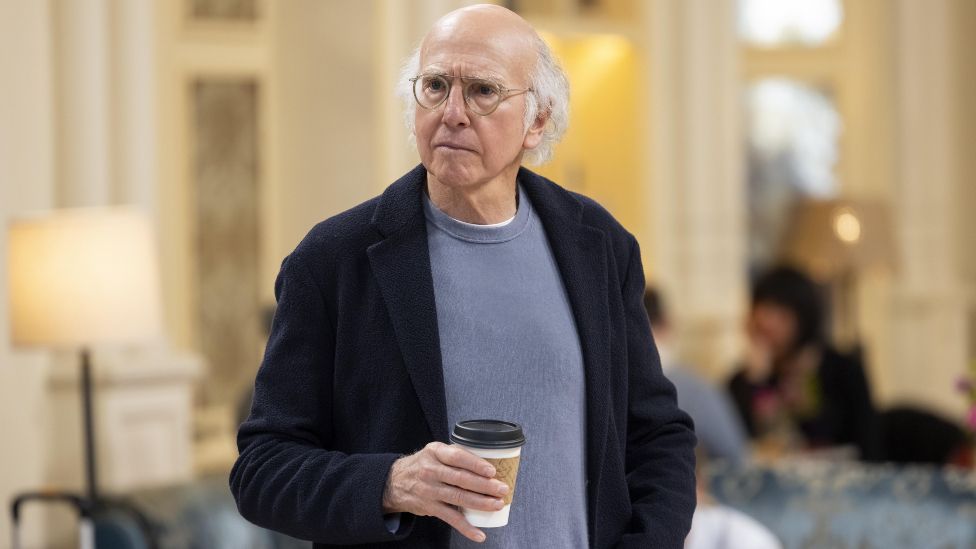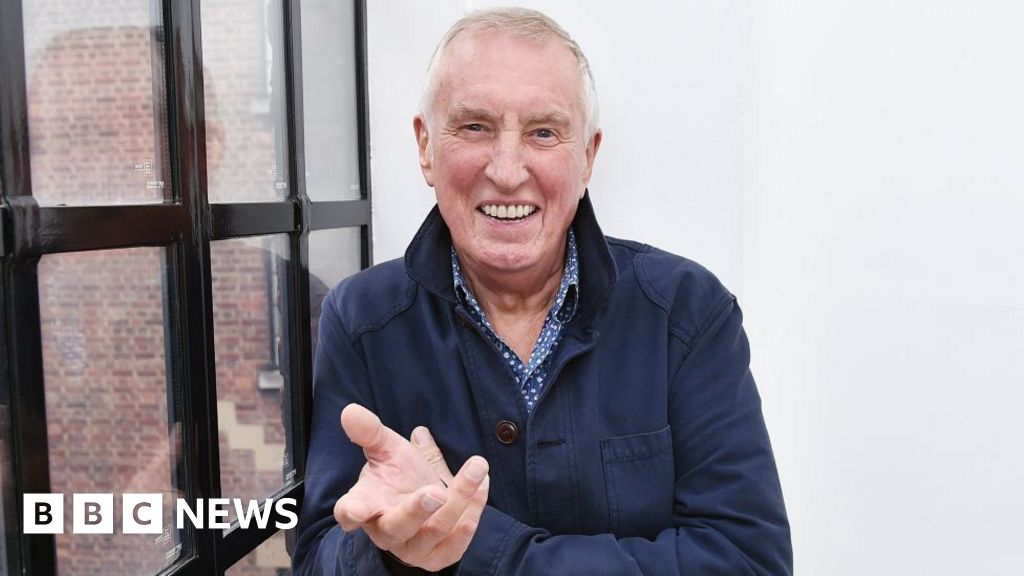ARTICLE AD BOX
 Image source, HBO
Image source, HBO
Larry David stars as an exaggerated version of himself in the series, which was rebooted in 2017
By Steven McIntosh
Entertainment reporter
Satirical comedy series Curb Your Enthusiasm drew to a close on Sunday, with a finale which referred back to highlights from the show's 12 seasons.
The HBO series stars Larry David as an exaggerated version of himself - a semi-retired television writer and producer based in Los Angeles.
In its review of the final season, Empire described the comedy as "an all-timer in the TV comedy hall of fame".
But the AV Club said the final episode was "devoid of much surprise".
The first iteration of Cub Your Enthusiasm concluded in 2011, but the series resumed six years later. In total, there have been 120 episodes.
"Curb, which debuted as a regular series in 2000 after first airing as a special in 1999, is as old as this century, and has moved forward by perpetually pushing limits," wrote Variety's Daniel D'Addario.
"It's done a solid if not always optimally elegant job of tracking the evolving dinner-party trending topics over two decades. The show's on-the-fly nature - with its wholly improvised conversations built around the loose outline of a plot - effectively invented a category of entertainment, but also means that the show is by its nature a blunt instrument.
"Larry and his friends are loopily, outrageously funny; they live out loud; they play games of one-upsmanship that are genuinely delightful to watch. But they are rarely sly."
Image source, HBO
Image caption,One subplot in the finale saw Leon (JB Smoove) finally get around to watching TV comedy Seinfeld
A basic structure of each episode's plot and subplot is written by David, but the show's dialogue is largely improvised by the actors.
That approach meant "many of the most quotable one-liners arose spontaneously within the moment", noted the Guardian's Charles Bramesco.
The final season's over-arching story line has been the continuing uncertainty about Larry accidentally running afoul of Georgia election laws.
Set in a court room, the season finale saw various characters previously featured in the series show up to provide testimony, a device which helped recall popular storylines from over the years.
But in a review published earlier in the season, Empire's Boyd Hilton suggested the show peaked with the scenes which did not necessarily serve the overall plot.
"It's a measure of just how willing David is to mine anything and everything for comic effect that some of the funniest scenes this season occur when David is simply a vessel of impotent rage, at inanimate objects or unwitting service-industry workers," he said.
"Those particular scenes don't really go anywhere, and don't need to. The show still makes time for some purely preposterous comedy shtick, and thank heavens for that."
Image source, EPA
Image caption,Curb Your Enthusiasm has won two Emmys and a Golden Globe in the course of its run
A string of celebrities, news anchors and other guest stars from the show made appearances in the show's send-off.
The finale also featured multiple references to TV comedy Seinfeld, which David co-created, including an appearance from Jerry Seinfeld himself.
Curb's conclusion included several nods to the criticism David received for Seinfeld's final episode in the late 1990s.
One subplot saw Larry's friend Leon (JB Smoove) finally get around to watching Seinfeld, creating a vehicle which allowed him to question Larry about the way it ended.
Their conversation, in turn, gave Larry an opportunity to indirectly address criticism about that series, ultimately delivering the line: "I'm not really interested in your opinion."
Reviewing the finale, CNN's Brian Lowry said: "David had clearly earned the right from HBO, creatively speaking, to say goodbye on his terms, and yes, not to fret about the reaction.
"Even so, it was nice to see in the Seinfeld plot that David could laugh not just at himself but at what many have long seen as one of his few conspicuous misfires.
"All told, as Larry is fond of saying, the result was pretty, pretty good, and indeed, even a bit better than that. And while Larry made a point in the episode of saying he hadn't learned a thing in his life, grading this on the spectrum of series finales would suggest otherwise."
Image source, HBO
Image caption,One critic, writing for the AV Club, said the finale felt "devoid of much surprise" [Larry David as himself and Sanaa Lathan as Sibby Sanders
"With everything leading up to this big, Election Integrity Act/water bottle trial all season, we all knew Curb Your Enthusiasm would end with Larry in court, just as Seinfeld did in its two-part, 1998 finale," she wrote.
"This was inevitable, but there were some variables at play, too: 1) whether our guy would be convicted and go to jail, and 2) which of Larry's previous-season sins would show up to incriminate the man.
"Is fan service fun? Sure, it's fine. And the court thing does serve as a convenient device to collect clips from seasons 1-12 to give the series a nostalgic send-off (which is why Seinfeld did it first, of course). But the thing is, this episode revolved so much around the Seinfeld finale that it felt a bit expected and devoid of much surprise."
'Timing is essential'
The final season of the comedy fell somewhat flat for David Remnick of The New Yorker, partly, he suggested, because of the real-life backdrop of the conflict in Israel.
"As I was watching, something felt out of kilter," he said. "It wasn't the occasional comic misfire that was bothering me. Nor was it the sense that the end of Curb signalled the end of something more than the show itself; the immigrant and children-of-immigrant Yiddishkeit version of Jewish humour has been on the wane for a long time.
"No, what was off was the timing, the misery of the moment. It was hard to think about the finale of Curb, or re-watch the Palestinian Chicken episode, amid the cruelty and carnage of the past six months.
"The comedy of manners plays with the mores of civilization; it can lose its charm when civilisation succumbs to barbarity. In life, as in comedy, timing is essential."

 9 months ago
56
9 months ago
56








 English (US) ·
English (US) ·